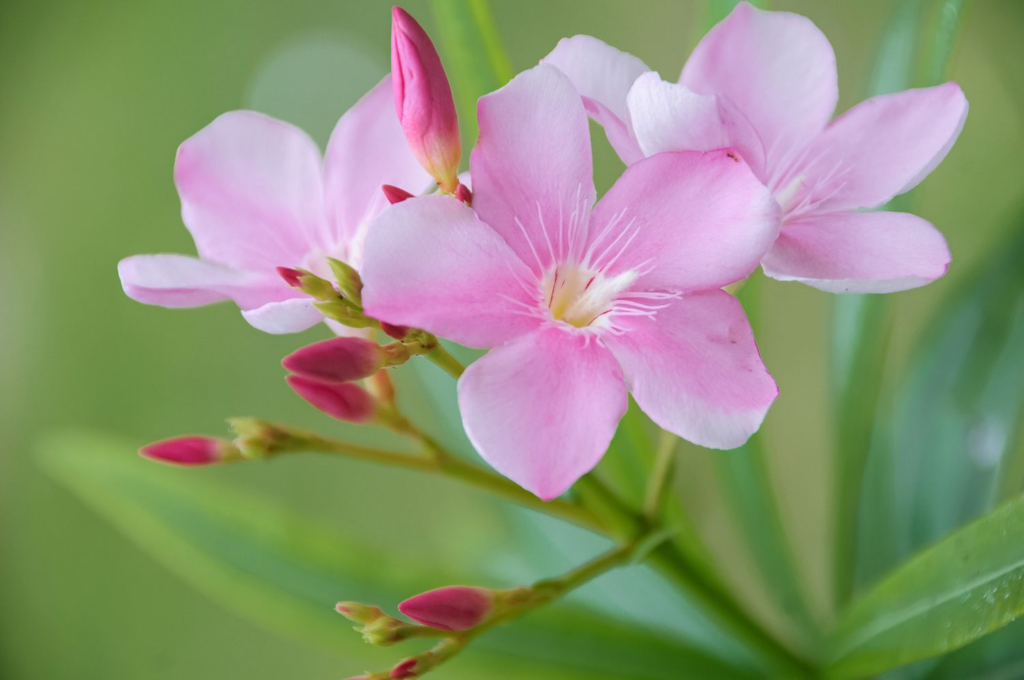Abu Dhabi has taken a step to ensure public safety by banning the cultivation and propagation of oleander plants, which are known for their beauty but pose serious health risks. The Abu Dhabi Agriculture and Food Safety Authority (ADAFSA) has taken this step to protect residents, particularly children and pets, from accidental exposure to the plant’s dangerous toxins.
Why Is Oleander So Dangerous?
Oleander is a popular shrub often used in gardens and public spaces for its vibrant flowers and lush green leaves. However, what many don’t realize is that all parts of this plant—leaves, stems, flowers, and seeds—are highly toxic. Even minimal contact or ingestion can lead to severe symptoms like nausea, vomiting, irregular heartbeat, and, in extreme cases, death. For small children and pets, the risk is especially high as they may unknowingly ingest parts of the plant.

A Rising Health Concern
The presence of oleander in Abu Dhabi’s gardens, parks, and roadside areas has been a growing concern. Despite its aesthetic appeal, the toxic nature of the plant made it a significant public health risk. ADAFSA’s decision aligns with Abu Dhabi’s broader “One Health” approach, which focuses on the intersection of human, animal, and environmental health?.
The plant’s toxins are so potent that even touching the plant can cause skin irritation, and burning oleander releases toxic fumes that are harmful when inhaled. The plant’s ability to thrive in the local climate has only added to the urgency of the ban?.
Implementing the Ban: What Happens Next?
The new resolution requires the safe removal of oleander plants from all public spaces and encourages private landowners to do the same. ADAFSA has teamed up with the Department of Municipalities and Transport to manage the removal of the plant from public parks, schools, and roadways. This initiative also includes support for private landowners who need help removing the plant from their properties.
Mouza Suhail Al Muhairi, ADAFSA’s Deputy Director General for Regulatory and Administrative Affairs, emphasized the importance of this preventive measure: “Our primary goal is to safeguard the well-being of our community, particularly vulnerable groups like children and pets. Removing this plant is a proactive step toward ensuring their safety”?.
ADAFSA has launched public awareness campaigns urging residents to cooperate by reporting any remaining oleander plants and avoiding contact with unknown plants. They’ve also provided guidelines for the safe removal and disposal of oleander to minimize any risks during the process.
Also read: UAE launching its First National Baseball Team
Collaboration and Community Effort
The success of this initiative heavily depends on community participation. ADAFSA is calling on residents to assist in the safe removal of oleander from their properties and to report any violations. Citizens are also advised not to handle the plant themselves without proper protective measures.
ADAFSA’s approach is not just about enforcement; they aim to create long-term awareness around the dangers of toxic plants. Educational campaigns and public service announcements have been rolled out to inform residents about the risks associated with oleander and how to recognize it?.
A Step Towards a Safer, Healthier Environment
Abu Dhabi’s ban on oleander reflects the emirate’s commitment to creating a safe and healthy environment for its residents. Removing this dangerous plant from both public and private spaces will significantly reduce the risk of accidental poisoning and improve the overall safety of outdoor areas. The initiative also highlights Abu Dhabi’s broader efforts to align with international safety and biodiversity standards?.
Authorities will enforce the ban through regular inspections and encourage all residents to comply for the collective well-being of the community.
Time to Take Action
The oleander ban marks a turning point in public health and environmental safety efforts in Abu Dhabi. With the proactive measures taken by ADAFSA, the emirate is prioritizing the health of its residents while promoting a safer, toxin-free environment. This initiative urges residents to be more aware of their surroundings and to take action to ensure the removal of harmful plants.
By eliminating oleander, Abu Dhabi is taking a critical step towards making the city a healthier place for everyone, including pets and wildlife. Authorities urge residents to stay informed, cooperate with them, and prioritize safety over aesthetics when choosing plants for gardens and public spaces.
Also read: Flyadeal announces SR1 flash sale for flights in Saudi Arabia












Leave a comment